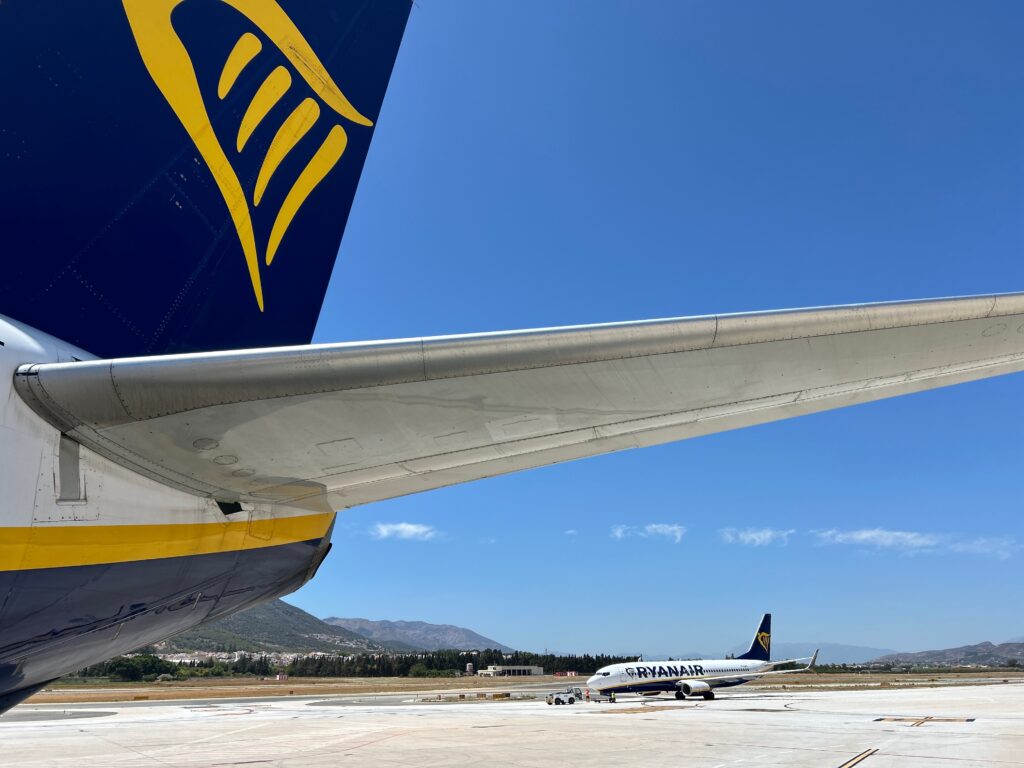Ryanair plans a 5–6% fare increase this summer after a tough year that saw ticket prices drop and profits slide. The airline reported a 16% fall in annual profits to €1.6 billion for the 2024–2025 fiscal year. Prices had already seen a 15% jump during the Easter travel season, marking the start of a broader pricing recovery.
The news comes as the low-cost carrier faces both internal and external challenges, including aircraft delays and booking disruptions due to conflicts with online travel agents.
Summer Fare Hike After Tough Year
Europe’s largest budget airline said it would raise ticket prices by about 5–6% over the coming summer months. This move follows a 7% drop in average fares in 2024. The lower prices hurt profits, though passenger numbers stayed strong.
Ryanair flew more than 200 million passengers during the 2024–2025 period — its highest number ever. However, the reduced fares meant the airline made just about €8 in profit per passenger, compared to higher margins in previous years.
CEO Michael O’Leary said the performance was “robust” despite the pricing pressure. He emphasized that cost growth remained in line with passenger growth, helping the airline stay on solid financial footing.
Dispute With Online Travel Agents Affected Sales
A public dispute with online travel agencies caused disruptions in third-party bookings. This led to lower demand through non-direct channels, though the airline’s direct sales remained strong.
The dispute centered on unauthorized listings and fare markups. Ryanair has long pushed for customers to book tickets directly on its own website to avoid extra fees and ensure accurate passenger details.
While the conflict affected bookings in the short term, it also reinforced Ryanair’s direct-to-consumer strategy. The company continues to invest in its website and mobile app to grow direct sales.
Boeing Delays Create Uncertainty
Ryanair had expected to receive 29 Boeing 737 Max 8 aircraft in time for the summer season. However, ongoing production delays may push deliveries into late summer or early fall.
This delay has sparked concerns about potential import tariffs from the European Union. CEO O’Leary said one option is to register the new planes in the United Kingdom, which could help avoid EU duties. “It’s a bureaucratic headache,” he noted, “but it may be necessary.”
Dividends and Share Buyback Announced
Despite lower profits, Ryanair announced a €400 million dividend to shareholders. The airline will also launch a €750 million share buyback program next week, citing strong cash reserves.
O’Leary said Ryanair is in a strong financial position and can afford to return capital to shareholders without compromising on growth plans. The company continues to hold high cash balances and maintains low debt compared to competitors.
O’Leary Weighs In on Trade and Politics
O’Leary also shared his views on global trade and politics. He suggested that a possible second term for Donald Trump might lead to a softer approach on tariffs, especially on aircraft and aviation parts.
He also welcomed UK Labour leader Keir Starmer’s pro-European Union tone. In particular, O’Leary praised Starmer’s support for youth mobility schemes and smoother travel rules. “Anything that reduces UK-EU friction helps us – especially the silly rules like making Brits queue in non-EU lanes,” he said.
These political shifts could impact airline operations and ticket pricing over the next few years. Ryanair is especially sensitive to regulatory changes that affect cross-border travel, airport access, and passenger rights.
While Ryanair faces short-term challenges, its long-term strategy remains unchanged. The airline continues to focus on low fares, efficient operations, and expanding its fleet. It plans to carry more passengers in 2025–2026 and expects fare increases to support profit recovery.
Passengers can expect slightly higher prices this summer, but Ryanair says it remains committed to being Europe’s lowest-cost airline.


